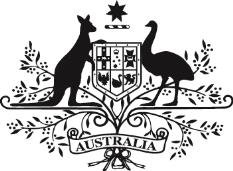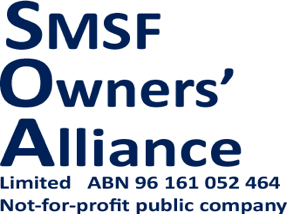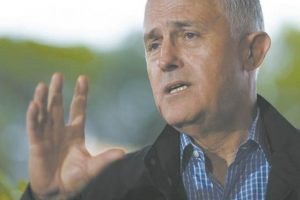Concerns regarding changes to Superannuation.
- I am concerned that any trust in saving to fund one’s retirement has been eroded by Mr Morrison’s budget decisions. When he spoke at the recent self managed superannuation conference held in Adelaide he said, “Our opponent’s stated policy is to tax superannuation earnings in the retirement phase. I fear that the approach of taxing in the retirement phase penalizes Australians who have put money into superannuation under the current rules – under the deal that they thought was there.” He went on to say, “ It may not be technical retrospectivity, the tax technicians and the superannuation technicians may say differently. It is effective retrospectively. But when you just look at it, that is the great risk.”
There were also at least 10 other occasions when Mr Morrison made tax free superannuation promises between May and June 2015. And yet, these promises were broken when he announced the proposed changes in the budget. People need to be able to trust the superannuation system. Life time decisions are made at the time of the laws available. To change those laws retrospectively is unreasonable and unfair. All they do is undermine trust in the government.
Past increases in superannuation used to be grandfathered and reflected the commitments that government encouraged workers to lock their savings away for many years to fund their retirement. So basically the Turnbull-Morison government has informed those near retirement or already retired , tough luck, we’ve just cut the retirement living standards you saved for, so get lost. And save for it we did, people of my generation.
Basically the message here is that if someone has carefully responded to all the requirements to fund themselves in retirement under the laws current at the time they did so, they can NEVER AGAIN TRUST A GOVERNMENT NOT TO CHANGE THE RULES TO DISADVANTAGE RETIREMENT LIVING STANDARDS AFTER THEY HAVE RETIRED.
- “There is no doubt that the proposed pension transfer balance cap of $1.6m is retrospective, as the Government has said that people with pension phase balances over $1.6m will have to reduce these by 1 July 2017, either by moving the money back into an accumulation account, or by taking it out of the super system. It is this part that makes it retrospective. (Switzer Daily, Paul Rickard, 12.05.2016).
- The Superannuation Fact Sheet provided by the government states that “A balance of $1.6 million could purchase an annual income stream of around four times the level of the single age pension.”
This amount has been questioned by the former treasurer of the Coalition, Peter Costello in his address to Women in Banking and Finance at a meeting in Sydney on May 17. It was reported in the Australian May 19: “Past returns are no guide to future performance. It is the most common piece of investment advice but one the government has appeared to ignore in its proposal to cap tax-free retirement balances to $1.6 million. Scott Morrison has claimed such a sum would provide a retirement income of about four times the aged pension, or about $88,000 a year. But the former treasurer has pointed out rightly 5.5 per cent returns are increasingly unrealistic, for the medium term at least. The typical diversified superannuation fund actually lost 1.6 percent in the year according to Chant West.”
Even when I spoke with Jane Prentice the member for my electorate of Ryan there was confusion about being able to top up the $1.6 million if it was reduced through something like the GFC or other aspects affecting the investment. The answer is “NO”. Basically this means that the Coalition Government is again reducing the standard of living for those in retirement. I find it quite unbelievable that such ill considered decisions can be inflicted on those who throughout their life times have in all probability paid the most income tax and contributed towards the country that Australia is today.
I would refer you to an article by Rowan Dean in the Courier Mail 9/6/2016 titled “Changes to super risk election loss.” I will provide you with one quote from this article, “ Peter Costello recently pointed out that super relies above all else on consistency.” People spend their lifetimes working, paying taxes, and supporting others – but every day they are planning their own future. Now the Coalition has thrown out the rule book and put a Bolshevik- style limit on how much you can save and – disgracefully- backdated it a decade. Such betrayal from a so called “Liberal” government is beyond belief.”
- The number of people affected by the changes to superannuation is more than 1% as outlined in the superannuation reforms paper. There are about 110,000 people affected by the $1.6m cap, 550,000 individuals affected by the new lifetime non-concessional cap, about 640,000 individuals affected by the transition to retirement changes,. In summary this is about 9% of fund members affected., The Australian, May 14-15.
- If Mr Costello had left the old reasonable limit benefit in place, its present value would be $2.5m. But the group think came to the conclusion that $1.6m is effectively the same as Labour’s policy, which tells us that the changes were all about politics and not good policy. Judith Sloan puts the whole thing down to a group think stuff-up. Fearing that the government was vulnerable to accusations of being unfair the group decided it could outflank Labour on superannuation and political accolades would surely follow. Sloan states that “the end result is an over-engineered dog’s breakfast, much of which will never be implemented, that BETRAYS A CORE CONSTITUENCY OF ITS VOTER BASE..” SHE ALSO SAYS THAT YOUNGER PEOPLE IN THEIR 40S AND 50S WILL NEVER BE ABLE TO FUND THEMSELVES IN RETIREMENT due to the changes.
- The following headlines in The Australian May 21-22 cannot be ignored:
Superannuation measures are a white hot issue in conservative ranks, Dennis Shanahan, p21.
Relegate Libs to save super, Dennis Shanahan, p9.
Super Squeeze to hit an entire generation hard, Andrew White, p27, 33.
Surely there must be some recognition that changes are needed to make the overall policy acceptable and incur trust in this government. These changes should include grandfathering appropriate aspects for those who made decisions to self fund their retirement under the rules as they existed then. Consideration should also be given to the potential millions of people in the future who can only contribute a maximum of $25,000 pa as a Concessional contribution combined with the $500,000 lifetime Non Concessional cap. I Ieave you to ascertain what this means for those attempting to reach the $1.6m cap.
The recent result of the Brexit campaign has thrown the financial markets into turmoil. This will have an enormous effect on superannuation funds. It is the uncertainty of current times and decisions upon which I, as a self funded retiree have no influence that saddens me and I am dependent upon the decision makers in government to demonstrate their concern for my wellbeing.
Maureen Burke
Brisbane, Qld







